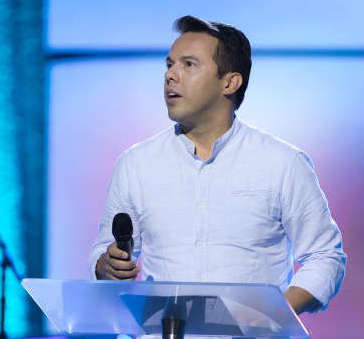Study: American Evangelicals Say They Want Balanced Approach to Immigration
Read Time: 5 Minutes, 26 Seconds
Substantial majorities of evangelicals in the United States say they want an immigration solution that both secures the border and values those already in the country.
In a study sponsored by the Evangelical Immigration Table and World Relief, Lifeway Research surveyed both self-identified evangelicals, and those who qualify as evangelicals by belief, to determine their attitudes toward immigrants and refugees as well as their opinions on potential legislative actions addressing the issues surrounding immigration.
“Evangelical Christians should be looking to the Bible—not any political party’s platform, media personalities or even a survey of fellow evangelicals—to determine how they respond to the arrival of immigrants to their communities,” said Matthew Soerens, national coordinator of the Evangelical Immigration Table. “But as evangelical leaders seek both to disciple those under their care and to advocate for public policies consistent with biblical principles, this study allows leaders to verify the extent their positions are in line with the views of evangelicals ‘in the pews’ and to know how to better serve them.”
More than four in five evangelicals describe legal immigration as helpful to the U.S., and around two in three believe the country should at least maintain the current number of legal immigrants approved in a year. Specifically, 25% say legal immigration is helpful and we should increase the number allowed each year, 40% see it as helpful and say we should maintain the current number approved and 19% believe it is helpful but favor decreasing the legal immigrants approved each year. Fewer (17%) believe legal immigration is harmful to the U.S., with 10% saying we should decrease the number approved and 6% believing we should completely stop approving legal immigrants.
Samuel Rodriguez, president of the National Hispanic Christian Leadership Conference, says he offered a solution to the immigration crisis to both former President Donald Trump and to President Joe Biden that he believes would alleviate much of the problem.
 “It’s definitely doable. It’s politically sustainable,” Rodriguez says. “I did my due diligence with Democrats and Republicans, including the Freedom Caucus, including the most conservative Republicans in the House. It stops illegal immigration immediately. It does away with catch and release. It creates a system where we continue to welcome immigrants because immigrants are a beautiful blessing to our nation, without a doubt.
“It’s definitely doable. It’s politically sustainable,” Rodriguez says. “I did my due diligence with Democrats and Republicans, including the Freedom Caucus, including the most conservative Republicans in the House. It stops illegal immigration immediately. It does away with catch and release. It creates a system where we continue to welcome immigrants because immigrants are a beautiful blessing to our nation, without a doubt.
“We want them to come here legally. Then we look at those currently here undocumented and we provide a pathway for legalization, but not citizenship. We only grant citizenship to the ‘Dreamers,’ whose parents brought them here as children and they had no choice. They shouldn’t have to pay for the sins of their parents. We should grant those individuals who are not engaged in nefarious activities and do not have a criminal record immediate citizenship.
“They’ll never be deported, as long as they’re not living off the government. They’re not going to get government entitlements. … That’s a solution I offered to the last couple presidents and leaders on both sides of the aisle.”
Evangelicals are most likely to see the number of recent immigrants to the U.S. as an opportunity, but significant numbers also view them as a threat. More than two in five say the arrival of immigrants is an opportunity to show them love (46%) and an opportunity to introduce them to Jesus (41%). One-third (33%) say they are an improvement to America’s cultural diversity, and 19% say they provide a boost to entrepreneurial activity.
On the negative side, 33% of evangelicals say the recent number of immigrants is a threat to the safety of citizens, 32% say they’re a drain on economic resources, 31% see immigrants as a threat to law and order, and 26% view them as a threat to traditional American customs and culture.
“While fear of the volume of immigrants is not absent among evangelicals, the larger response is one of love for these individuals,” said Scott McConnell, executive director of Lifeway Research. “More than four times as many evangelicals find legal immigration helpful to the United States than those who find it harmful.”
National and Personal Responsibility
American evangelicals believe the U.S. has a moral responsibility to accept refugees and immigrants in a variety of circumstances and that Christians should be caring for them.
More than three in five evangelicals (70%) agree the U.S. has a moral obligation to accept refugees, which are legally defined as someone fleeing persecution due to specific factors such as their race, religion or political opinion. Additionally, around three in four agree that a national moral obligation exists to accept refugees fleeing religious persecution (74%) and people fleeing natural disasters (73%). Smaller majorities of evangelicals agree there is a moral obligation for the U.S. to accept people from other countries seeking to be reunited with family members already in the U.S. legally (67%) and people from other countries fleeing poverty (60%).
Additionally, 69% say Christians have a responsibility to care sacrificially for refugees or other foreigners, and 58% say Christians should assist immigrants even if they are here illegally.
“World Relief alone has partnered with thousands of churches and tens of thousands of volunteers to resettle refugees and serve other immigrants in the past decade, and of course, many churches have their own ministries to immigrants as well,” said Soerens, who also serves as the U.S. director of church mobilization and advocacy at World Relief. “Over the past year, the arrival of large numbers of Afghans and Ukrainians who were forced to flee their homelands has reminded many Christians of their biblical calling to love these uniquely vulnerable neighbors.”
In each area of national and personal responsibility, evangelicals by belief are more likely than self-identified evangelicals to strongly agree that a moral obligation exists.
Legislative Solutions
Seven in 10 evangelicals (71%) say it is important that Congress pass new immigration legislation in 2022. When asked about specific types of emphases they would prefer in immigration policy, evangelicals want laws that provide citizenship opportunities for those who are here illegally and that also protect the U.S. border.
More than three in four evangelicals say they support potential legislation that ensures fairness to the taxpayer (94%), protects the unity of the immediate family (92%), respects the rule of law (92%), respects the God-given dignity of every person (90%), guarantees secure national borders (90%) and establishes a path toward citizenship for those who are here illegally, are interested and meet certain qualifications (78%).
For the rest of this article, visit research.lifeway.com. {eoa}
Note: The online survey of 1,007 Americans was conducted Aug. 8-19, 2022, using a national pre-recruited panel. Quotas and slight weights were used to balance gender, age, region, ethnicity and education to more accurately reflect the population. The survey was completed by people who self-identified as evangelical or qualified as evangelical by belief. The complete sample is 1,007 surveys: 512 were completed by those with evangelical beliefs; 911 were completed by self-identified evangelicals.
















































